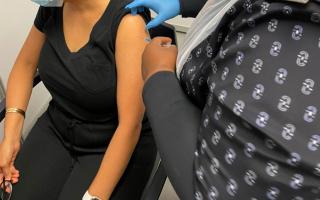What you need to know about the COVID-19 Vaccine Injury Compensation Scheme
In the early months of 2021 and just over a year after the COVID-19 pandemic had started, the South African government secured millions of vaccine doses from several pharmaceutical manufacturers. As part of the terms of the agreement between governments and the manufacturers, governments were required to exempt the manufacturers, at least partly, from liability and potential lawsuits in the case of any severe side effects the vaccination may cause. In South Africa, this led to the establishment of the COVID-19 Vaccine Injury No-Fault Compensation Scheme (“Scheme”).
What is the Vaccine Injury No-Fault Compensation Scheme?
- The Scheme is a fund which was established under section 27 of the Disaster Management Act 57 of 2002 with the purpose of providing quick and easy access to compensation for persons who suffer from a COVID-19 vaccine injury.
- The vaccine injuries covered in terms of the Scheme are serious injuries resulting in:
- permanent physical/mental impairment; or
- temporary physical/ mental impairment; or
- death.
- In simple terms, if a person sustains a serious injury as a result of the vaccination, they can submit a claim to the Scheme and may be compensated for the serious injuries sustained.
- Common side effects of the vaccine include fatigue, fever, headache, muscle pain, chills and diarrhea, however, these are not classified as “serious” in terms of the scheme.
Who is eligible to claim from the Scheme?
- Any person who has suffered a serious injury as a result of receiving an applicable vaccination may claim from the Scheme.
- The dependants of a deceased person, whose death was as a result of receiving an applicable vaccine may also claim from the Scheme.
- The Scheme only applies to vaccinations administered at an official vaccination site after 17 May 2021, however, it will be limited to vaccinations procured under any agreement entered into up to 5 April 2022.
- The Scheme will also only apply to certain vaccines, such as the Pfizer and Johnson & Johnson vaccines.
How can a person claim from the Scheme?
- A person who suffers from an injury as result from a vaccine (also known as an Adverse Effect Following Immunisation (“AEFI”)) must report it within 30 days of the onset of the AEFI in one of the following manners:
- Visit a health facility (such as clinics and hospitals) to complete a Case Reporting Form (“CRF”), or download the CRF by clicking here. The completed form may be e-mailed to AEFI@health.gov.za.
- Alternatively, call the COVID-19 hotline on 0800 029 999, or report the injury on the MedSafety mobile app.
- Once an injury is reported, the National Immunisation Safety Expert Committee (“NISEC”) conducts an investigation to establish the causal link between the alleged vaccine injury and the vaccine.
- If a causal link is established, the NISEC must report it to the Department of Health and the Administrator of the Scheme who will assist the eligible person or their dependants to lodge a claim against the Scheme by completing the official claim form.
- In the case of a claim for a dependant, some of the documents which may be required include a death certificate, marriage certificate, birth certificate or documentary evidence proving the existence of a life partnership.
Can a person appeal the outcome of a claim?
- Yes, a person who is not satisfied with the findings of the NISEC that the injury is not causally linked to the administration of the vaccine or the compensation amount offered, may lodge an appeal within 90 days from the time s/he was informed of the outcome of the claim.
- Such appeals may be directed to the Appeal Panel in writing and on the prescribed form.
- The Appeal Panel may allow the claimant to appear before it with a medical practitioner or other professional. The Appeal Panel may also call for further information.
Can a claim also be instituted against the Compensation Fund for work-related injuries or diseases?
- In terms of the Compensation for Occupational Injuries and Diseases Act (“COIDA”), there is another fund, known as the Compensation Fund that provides compensation to employees who become disabled due to work-related injuries or due to contracting a disease in the course of their work.
- In cases where getting the COVID-19 vaccine is an inherent requirement of an employee’s job, or where the employee is required to get vaccinated in terms of his/her employer’s risk assessment, the employee can claim though COIDA if they incur serious injury as a result from the vaccine.
- In this case, the injured employee may only claim from COIDA and not from the Scheme.
- There are six requirements that the employee will have to meet, namely:
- the vaccine must be regarded as an inherent requirement of employment in terms of the employer’s risk assessment;
- the employee must have received a SAHPRA-approved COVID-19 vaccine;
- evidence of the employer’s risk assessment and vaccination plan in terms of the Consolidated Directions on Occupational Health and Safety Measures in Certain Workplaces must be provided;
- the chronological sequence between the vaccine and the development of the employee’s symptoms and clinical signs must be provided;
- the employee must have presented with symptoms and clinical signs that are generally recognised as side effects of the COVID-19 vaccine; and
- additional tests may be required to assess the presence of abnormalities of any organ affected.
The National State of Disaster was lifted on 4 April 2022, but the scheme will continue to operate until it reaches its objective of providing compensation for vaccine injuries. In essence, the scheme is meant to compensate people who incur serious injury arising from the COVID-19 vaccine.
